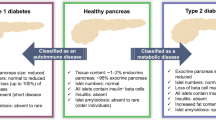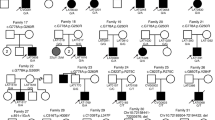Abstract
The discipline of paediatric nephrology encompasses the congenital nephritic syndromes, renal dysplasias, neonatal renal tumours, early onset cystic disease, tubulopathies and vesicoureteric reflux, all of which arise due to defects in normal kidney development. Indeed, congenital anomalies of the kidney and urinary tract (CAKUT) represent 20–30% of prenatal anomalies, occurring in 1 in 500 births. Developmental biologists have studied the anatomical and morphogenetic processes involved in kidney development for the last five decades. However, with the advent of transgenic mice, the sequencing of the genome, improvements in mutation detection and the advent of functional genomics, our understanding of the molecular basis of kidney development has grown significantly. Here we discuss how the advent of new genetic and genomics approaches has added to our understanding of kidney development and paediatric renal disease, as well as identifying areas in which we are still lacking knowledge.


Similar content being viewed by others
References
Grobstein C (1956) Trans-filter induction of tubules in mouse metanephrogenic mesenchyme. Exp Cell Res 10:424–440
Grobstein C (1953) Morphogenetic interaction between embryonic mouse tissues separated by a membrane filter. Nature 172:869–870
Unsworth B, Grobstein C (1970) Induction of kidney tubules in mouse metanephrogenic mesenchyme by various embryonic mesenchymal tissues. Dev Biol 21:547–556
Sariola H, Ekblom P, Henke-Fahle S (1989) Embryonic neurons as in vitro inducers of differentiation of nephrogenic mesenchyme. Dev Biol 132:271–281
Leimeister C, Bach A, Woolf AS, Gessler M (1999) Screen for genes regulated during early kidney morphogenesis. Dev Genet 24:273–283
Plisov SY, Ivanov SV, Yoshino K, Dove LF, Plisova TM, Higinbotham KG, Karavanova I, Lerman M, Perantoni AO (2000) Mesenchymal-epithelial transition in the developing metanephric kidney: gene expression study by differential display. Genesis 27:22–31
Stuart RO, Bush KT, Nigam SK (2001) Changes in global gene expression patterns during development and maturation of the rat kidney. Proc Natl Acad Sci USA 98:5649–5654
Valerius MT, Patterson LT, Witte DP, Potter SS (2002) Microarray analysis of novel cell lines representing two stages of metanephric mesenchyme differentiation. Mech Dev 112:219–232
Livesey R (2002) Have microarrays failed to deliver for developmental biology? Genome Biol 3:comment 2009
Schwab K, Patterson LT, Aronow BJ, Luckas R, Liang HC, Potter SS (2003) A catalogue of gene expression in the developing kidney. Kidney Int 64:1588–1604
Challen G, Gardiner B, Caruana G, Kostoulias X, Martinez G, Crowe M, Taylor DF, Bertram J, Little M, Grimmond SM (2005) Temporal and spatial transcriptional programs in murine kidney development. Physiol Genomics 23:159–171
Stuart RO, Bush KT, Nigam SK (2003) Changes in gene expression patterns in the ureteric bud and metanephric mesenchyme in models of kidney development. Kidney Int 64:1997–2008
Caruana G, Cullen-McEwen L, Nelson AL, Kostoulias X, Woods K, Gardiner B, Davis MJ, Taylor DF, Teasdale RD, Grimmond SM, Little MH, Bertram JF (2006) Spatial gene expression in the T-stage mouse metanephros. Gene Expr Patterns 6:807–825
Schmidt-Ott KM, Yang J, Chen X, Wang H, Paragas N, Mori K, Li JY, Lu B, Costantini F, Schiffer M, Bottinger E, Barasch J (2005) Novel regulators of kidney development from the tips of the ureteric bud. J Am Soc Nephrol 16:1993–2002
Takasato M, Osafune K, Matsumoto Y, Kataoka Y, Yoshida N, Meguro H, Aburatani H, Asashima M, Nishinakamura R (2004) Identification of kidney mesenchymal genes by a combination of microarray analysis and Sall1-GFP knockin mice. Mech Dev 121:547–557
Challen GA, Martinez G, Davis MJ, Taylor DF, Crowe M, Teasdale RD, Grimmond SM, Little MH (2004) Identifying the molecular phenotype of renal progenitor cells. J Am Soc Nephrol 15:2344–2357
Yano N, Endoh M, Fadden K, Yamashita H, Kane A, Sakai H, Rifai A (2000) Comprehensive gene expression profile of the adult human renal cortex: analysis by cDNA array hybridization. Kidney Int 57:1452–1459
Higgins JP, Wang L, Kambham N, Montgomery K, Mason V, Vogelmann SU, Lemley KV, Brown PO, Brooks JD, van de Rijn M (2004) Gene expression in the normal adult human kidney assessed by complementary DNA microarray. Mol Biol Cell 15:649–656
Brunskill EW, Aronow BJ, Georgas K, Rumballe B, Valerius MT, Aronow J, Kaimal V, Jegga AG, Grimmond S, McMahon AP, Patterson LT, Little MH, Potter SS (2008) Atlas of gene expression in the developing kidney at microanatomic resolution. Dev Cell 15:781–791
McMahon AP, Aronow BJ, Davidson DR, Davies JA, Gaido KW, Grimmond S, Lessard JL, Little MH, Potter SS, Wilder EL, Zhang P (2008) GUDMAP: the genitourinary developmental molecular anatomy project. J Am Soc Nephrol 19:667–671
Airik R, Karner M, Karis A, Karner J (2005) Gene expression analysis of Gata3-/- mice by using cDNA microarray technology. Life Sci 76:2559–2568
Ma Z, Gong Y, Patel V, Karner CM, Fischer E, Hiesberger T, Carroll TJ, Pontoglio M, Igarashi P (2007) Mutations of HNF-1beta inhibit epithelial morphogenesis through dysregulation of SOCS-3. Proc Natl Acad Sci USA 104:20386–20391
Cui S, Li C, Ema M, Weinstein J, Quaggin SE (2005) Rapid isolation of glomeruli coupled with gene expression profiling identifies downstream targets in Pod1 knockout mice. J Am Soc Nephrol 16:3247–3255
Potter SS, Hartman HA, Kwan KM, Behringer RR, Patterson LT (2007) Laser capture-microarray analysis of Lim1 mutant kidney development. Genesis 45:432–329
Saal S, Harvey SJ (2009) MicroRNAs and the kidney: coming of age. Curr Opin Nephrol Hypertens 18:317–323
Harvey SJ, Jarad G, Cunningham J, Goldberg S, Schermer B, Harfe BD, McManus MT, Benzing T, Miner JH (2008) Podocyte-specific deletion of dicer alters cytoskeletal dynamics and causes glomerular disease. J Am Soc Nephrol 19:2150–2158
Ho J, Ng KH, Rosen S, Dostal A, Gregory RI, Kreidberg JA (2008) Podocyte-specific loss of functional microRNAs leads to rapid glomerular and tubular injury. J Am Soc Nephrol 19:2069–2075
Shi S, Yu L, Chiu C, Sun Y, Chen J, Khitrov G, Merkenschlager M, Holzman LB, Zhang W, Mundel P, Bottinger EP (2008) Podocyte-selective deletion of dicer induces proteinuria and glomerulosclerosis. J Am Soc Nephrol 19:2159–2169
Davies JA, Brandli AW (1996) A computer database for kidney development. Trends Genet 12:322
Davies JA (1999) The kidney development database. Dev Genet 24:194–198
Berkovic SF, Dibbens LM, Oshlack A, Silver JD, Katerelos M, Vears DF, Lullmann-Rauch R, Blanz J, Zhang KW, Stankovich J, Kalnins RM, Dowling JP, Andermann E, Andermann F, Faldini E, D'Hooge R, Vadlamudi L, Macdonell RA, Hodgson BL, Bayly MA, Savige J, Mulley JC, Smyth GK, Power DA, Saftig P, Bahlo M (2008) Array-based gene discovery with three unrelated subjects shows SCARB2/LIMP-2 deficiency causes myoclonus epilepsy and glomerulosclerosis. Am J Hum Genet 82:673–684
Barr MM (2005) Caenorhabditis elegans as a model to study renal development and disease: sexy cilia. J Am Soc Nephrol 16:305–312
Lipton J (2005) Mating worms and the cystic kidney: Caenorhabditis elegans as a model for renal disease. Pediatr Nephrol 20:1531–1536
Majumdar A, Drummond IA (2000) The zebrafish floating head mutant demonstrates podocytes play an important role in directing glomerular differentiation. Dev Biol 222:147–157
Sun Z, Amsterdam A, Pazour GJ, Cole DG, Miller MS, Hopkins N (2004) A genetic screen in zebrafish identifies cilia genes as a principal cause of cystic kidney. Development 131:4085–4093
Drummond IA, Majumdar A, Hentschel H, Elger M, Solnica-Krezel L, Schier AF, Neuhauss SC, Stemple DL, Zwartkruis F, Rangini Z, Driever W, Fishman MC (1998) Early development of the zebrafish pronephros and analysis of mutations affecting pronephric function. Development 125:4655–4667
Raciti D, Reggiani L, Geffers L, Jiang Q, Bacchion F, Subrizi AE, Clements D, Tindal C, Davidson DR, Kaissling B, Brandli AW (2008) Organization of the pronephric kidney revealed by large-scale gene expression mapping. Genome Biol 9:R84
Jones EA (2005) Xenopus: a prince among models for pronephric kidney development. J Am Soc Nephrol 16:313–321
Reggiani L, Raciti D, Airik R, Kispert A, Brandli AW (2007) The prepattern transcription factor Irx3 directs nephron segment identity. Genes Dev 21:2358–23570
Alarcon P, Rodriguez-Seguel E, Fernandez-Gonzalez A, Rubio R, Gomez-Skarmeta JL (2008) A dual requirement for Iroquois genes during Xenopus kidney development. Development 135:3197–3207
Jung AC, Denholm B, Skaer H, Affolter M (2005) Renal tubule development in Drosophila: a closer look at the cellular level. J Am Soc Nephrol 16:322–328
Weavers H, Prieto-Sanchez S, Grawe F, Garcia-Lopez A, Artero R, Wilsch-Brauninger M, Ruiz-Gomez M, Skaer H, Denholm B (2009) The insect nephrocyte is a podocyte-like cell with a filtration slit diaphragm. Nature 457:322–326
Liu J, Ghanim M, Xue L, Brown CD, Iossifov I, Angeletti C, Hua S, Negre N, Ludwig M, Stricker T, Al-Ahmadie HA, Tretiakova M, Camp RL, Perera-Alberto M, Rimm DL, Xu T, Rzhetsky A, White KP (2009) Analysis of Drosophila segmentation network identifies a JNK pathway factor overexpressed in kidney cancer. Science 323:1218–1222
Singh SR, Hou SX (2009) Multipotent stem cells in the Malpighian tubules of adult Drosophila melanogaster. J Exp Biol 212:413–423
Igarashi P (2004) Kidney-specific gene targeting. J Am Soc Nephrol 15:2237–2239
Rubera I, Hummler E, Beermann F (2009) Transgenic mice and their impact on kidney research. Pflugers Arch 458:211–222
Kobayashi A, Valerius MT, Mugford JW, Carroll TJ, Self M, Oliver G, McMahon AP (2008) Six2 defines and regulates a multipotent self-renewing nephron progenitor population throughout mammalian kidney development. Cell Stem Cell 3:169–181
Shan J, Jokela T, Skovorodkin I, Vainio S (2010) Mapping of the fate of cell lineages generated from cells that express the Wnt4 gene by time-lapse during kidney development. Differentiation 79:57–64
Li J, Chen F, Epstein JA (2000) Neural crest expression of Cre recombinase directed by the proximal Pax3 promoter in transgenic mice. Genesis 26:162–164
Chang CP, McDill BW, Neilson JR, Joist HE, Epstein JA, Crabtree GR, Chen F (2004) Calcineurin is required in urinary tract mesenchyme for the development of the pyeloureteral peristaltic machinery. J Clin Invest 113:1051–1058
Eremina V, Baelde HJ, Quaggin SE (2007) Role of the VEGF–a signaling pathway in the glomerulus: evidence for crosstalk between components of the glomerular filtration barrier. Nephron Physiol 106:32–37
Mugford JW, Sipila P, McMahon JA, McMahon AP (2008) Osr1 expression demarcates a multi-potent population of intermediate mesoderm that undergoes progressive restriction to an Osr1-dependent nephron progenitor compartment within the mammalian kidney. Dev Biol 324:88–98
Humphreys BD, Valerius MT, Kobayashi A, Mugford JW, Soeung S, Duffield JS, McMahon AP, Bonventre JV (2008) Intrinsic epithelial cells repair the kidney after injury. Cell Stem Cell 2:284–291
Hartman HA, Lai HL, Patterson LT (2007) Cessation of renal morphogenesis in mice. Dev Biol 310:379–387
Mittaz L, Ricardo S, Martinez G, Kola I, Kelly DJ, Little MH, Hertzog PJ, Pritchard MA (2005) Neonatal calyceal dilation and renal fibrosis resulting from loss of Adamts-1 in mouse kidney is due to a developmental dysgenesis. Nephrol Dial Transplant 20:419–423
Oliver JA, Maarouf O, Cheema FH, Martens TP, Al-Awqati Q (2004) The renal papilla is a niche for adult kidney stem cells. J Clin Invest 114:795–804
Patel SR, Kim D, Levitan I, Dressler GR (2007) The BRCT-domain containing protein PTIP links PAX2 to a histone H3, lysine 4 methyltransferase complex. Dev Cell 13:580–592
Price KL, Long DA, Jina N, Liapis H, Hubank M, Woolf AS, Winyard PJ (2007) Microarray interrogation of human metanephric mesenchymal cells highlights potentially important molecules in vivo. Physiol Genomics 28:193–202
Hilpert J, Wogensen L, Thykjaer T, Wellner M, Schlichting U, Orntoft TF, Bachmann S, Nykjaer A, Willnow TE (2002) Expression profiling confirms the role of endocytic receptor megalin in renal vitamin D3 metabolism. Kidney Int 62:1672–1681
Norman LP, Jiang W, Han X, Saunders TL, Bond JS (2003) Targeted disruption of the meprin beta gene in mice leads to underrepresentation of knockout mice and changes in renal gene expression profiles. Mol Cell Biol 23:1221–1230
McReynolds MR, Taylor-Garcia KM, Greer KA, Hoying JB, Brooks HL (2005) Renal medullary gene expression in aquaporin-1 null mice. Am J Physiol Renal Physiol 288:F315–F321
Bachvarov D, Bachvarova M, Koumangaye R, Klein J, Pesquero JB, Neau E, Bader M, Schanstra JP, Bascands JL (2006) Renal gene expression profiling using kinin B1 and B2 receptor knockout mice reveals comparable modulation of functionally related genes. Biol Chem 387:15–22
Grote D, Souabni A, Busslinger M, Bouchard M (2006) Pax 2/8-regulated Gata 3 expression is necessary for morphogenesis and guidance of the nephric duct in the developing kidney. Development 133:53–61
Riera M, Burtey S, Fontes M (2006) Transcriptome analysis of a rat PKD model: Importance of genes involved in extracellular matrix metabolism. Kidney Int 69:1558–1563
Schwab K, Hartman HA, Liang HC, Aronow BJ, Patterson LT, Potter SS (2006) Comprehensive microarray analysis of Hoxa11/Hoxd11 mutant kidney development. Dev Biol 293:540–554
Shirota S, Yoshida T, Sakai M, Kim JI, Sugiura H, Oishi T, Nitta K, Tsuchiya K (2006) Correlation between the expression level of c-maf and glutathione peroxidase-3 in c-maf -/- mice kidney and c-maf overexpressed renal tubular cells. Biochem Biophys Res Commun 348:501–506
Schwab KR, Patterson LT, Hartman HA, Song N, Lang RA, Lin X, Potter SS (2007) Pygo1 and Pygo2 roles in Wnt signaling in mammalian kidney development. BMC Biol 5:15
Cai Q, McReynolds MR, Keck M, Greer KA, Hoying JB, Brooks HL (2007) Vasopressin receptor subtype 2 activation increases cell proliferation in the renal medulla of AQP1 null mice. Am J Physiol Renal Physiol 293:F1858–F1864
Done SC, Takemoto M, He L, Sun Y, Hultenby K, Betsholtz C, Tryggvason K (2008) Nephrin is involved in podocyte maturation but not survival during glomerular development. Kidney Int 73:697–704
Kim YS, Kang HS, Herbert R, Beak JY, Collins JB, Grissom SF, Jetten AM (2008) Kruppel-like zinc finger protein Glis2 is essential for the maintenance of normal renal functions. Mol Cell Biol 28:2358–2367
Valerius MT, McMahon AP (2008) Transcriptional profiling of Wnt4 mutant mouse kidneys identifies genes expressed during nephron formation. Gene Expr Patterns 8:297–306
Okada S, Misaka T, Tanaka Y, Matsumoto I, Ishibashi K, Sasaki S, Abe K (2008) Aquaporin-11 knockout mice and polycystic kidney disease animals share a common mechanism of cyst formation. FASEB J 22:3672–3684
Georgas K, Rumballe B, Valerius MT, Chiu HS, Thiagarajan RD, Lesieur E, Aronow BJ, Brunskill EW, Combes AN, Tang D, Taylor D, Grimmond SM, Potter SS, McMahon AP, Little MH (2009) Analysis of early nephron patterning reveals a role for distal RV proliferation in fusion to the ureteric tip via a cap mesenchyme-derived connecting segment. Dev Biol 332:273–286
Drummond I (2003) Making a zebrafish kidney: a tale of two tubes. Trends Cell Biol 13:357–365
Wingert RA, Davidson AJ (2008) The zebrafish pronephros: a model to study nephron segmentation. Kidney Int 73:1120–1127
Author information
Authors and Affiliations
Corresponding author
Rights and permissions
About this article
Cite this article
Rumballe, B., Georgas, K., Wilkinson, L. et al. Molecular anatomy of the kidney: what have we learned from gene expression and functional genomics?. Pediatr Nephrol 25, 1005–1016 (2010). https://doi.org/10.1007/s00467-009-1392-6
Received:
Revised:
Accepted:
Published:
Issue Date:
DOI: https://doi.org/10.1007/s00467-009-1392-6




